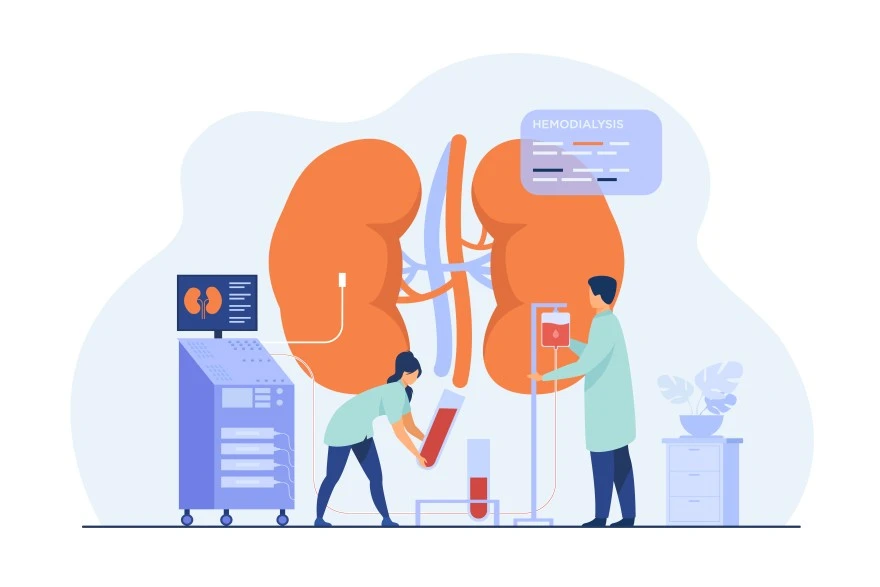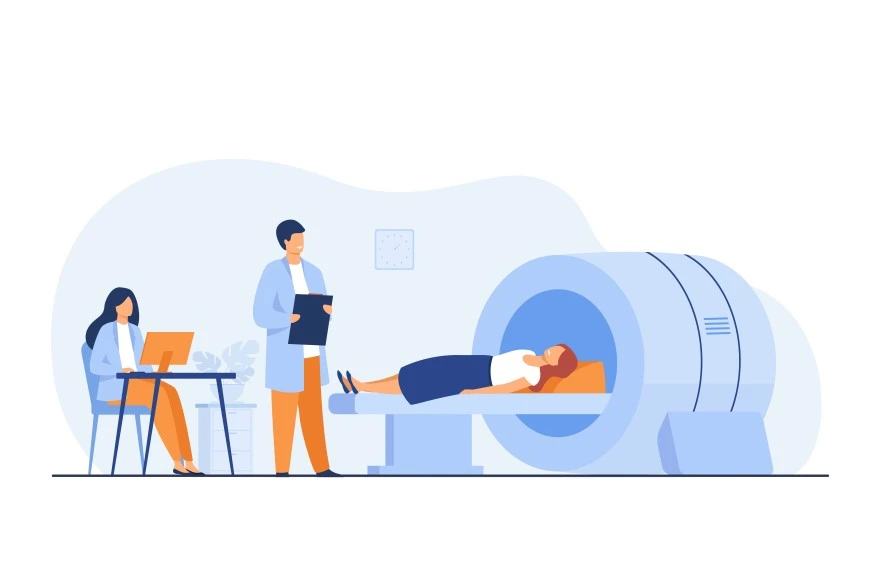Health Test
Could you need a Kidney function test? Find out here

Table of Contents
Your kidneys are two bean-shaped organs, located just below the rib cage, near the middle of your back. Each of them is about the size of your fist. The kidneys help your body remove waste and extra water from the blood in the form of urine, reabsorb nutrients and maintain the balance of ions and electrolytes (such as sodium, potassium, and calcium). Moreover, they are also involved in producing hormones that help in controlling blood pressure and stimulating bone marrow to produce red blood cells.
Help your kidneys stay healthy with regular monitoring. Book a kidney function test here.
Kidney disease is more common than you think!
Chronic kidney disease (CKD) is being identified as a leading public health problem globally. The worldwide prevalence of CKD is estimated to be around 13.4%. Between 4.902 and 7.083 million people affected with end-stage kidney disease (ESKD) are in need of kidney replacement therapy.
Earlier older people were more commonly diagnosed with kidney conditions. But nowadays, it is not uncommon for young adults to develop them, say health experts.
How can you assess your risk of getting a kidney disease?
Certain risk factors can increase your chances of developing a kidney disease. People who have an increased risk of kidney-related problems should get their kidneys tested more often so as to spot any condition early on and start with the treatment.
Here are top 6 questions to ask yourself to know if you need a kidney function test:
Do you have a family history of kidney disease?
Family history is a strong predictor of having kidney disease. People whose family members have been diagnosed with end stage kidney disease were found to report an increased prevalence of chronic kidney disease. If you are unsure about your family history of kidney disease, ask and get to know.
Are you over 30 years of age?
Just like other organs, your kidneys also age as you age. Even in people without kidney disease, glomerular filtration rate (GFR) declines with advancing age. What does GFR mean? It is a very important test that checks how well your kidneys are working. To be more specific, GFR values estimate how much blood passes through the tiny filters in the kidneys (glomeruli) every minute. A normal GFR value is 60 or above. If your GFR is below 60 for three months or more, your kidneys may not be functioning well and you may need to consult an expert and get tested more often as advised. A GFR less than 15 may indicate the need to get started on dialysis or have a kidney transplant.
Is your blood sugar levels high?
Diabetes that causes high blood sugar levels is the leading cause of kidney failure. It accounts for 44% percent of new cases. Uncontrolled diabetes can lead to damage to blood vessels in your kidneys. Over time, this causes kidney failure. People with diabetes should be vigilant of their blood sugar status.
Do you have high blood pressure?
High blood pressure causes your heart to work harder. In fact, it leads to damage to blood vessels over time. Arteries around the kidneys get narrowed, weakened or hardened due to high blood pressure. This results in inability of these arteries to deliver sufficient amounts of blood to the kidney and causes damage to the kidneys. In general, it is important to keep blood pressure below 130/80 to prevent kidney damage. Apart from high blood pressure, other conditions including stroke, heart attack, or heart failure can also increase your risk of getting your kidneys damaged.
Are you overweight or obese?
Obesity is a potent risk factor for kidney disease. It increases the risk of developing major risk factors for chronic kidney disease (CKD), like diabetes and hypertension. Moreover, it has been seen to have a direct impact on the development of end-stage renal disease.
Do you smoke? (and not even trying to quit)
As per some reports, people who smoke are three times more likely to have reduced kidney function than people who don’t smoke. Smoking causes hardening of arteries and impedes the blood flow to the kidneys. Also, it can make an existing kidney disease worse.
Early kidney disease is a silent problem
So, pay attention! You may have kidney disease and do not have any symptoms, especially in the early stages. It might happen that your condition is progressing but you do not feel ill. Some other people can only experience mild symptoms like nausea, fatigue, etc. Hence, it is important to beware of your risk of kidney problems and get yourself tested from time to time. Check with your doctor as to what the kidney test results mean and if you need any medical intervention.
Looking to book a comprehensive health package? Get 32 parameters checked TruHealth Master Test here.





































